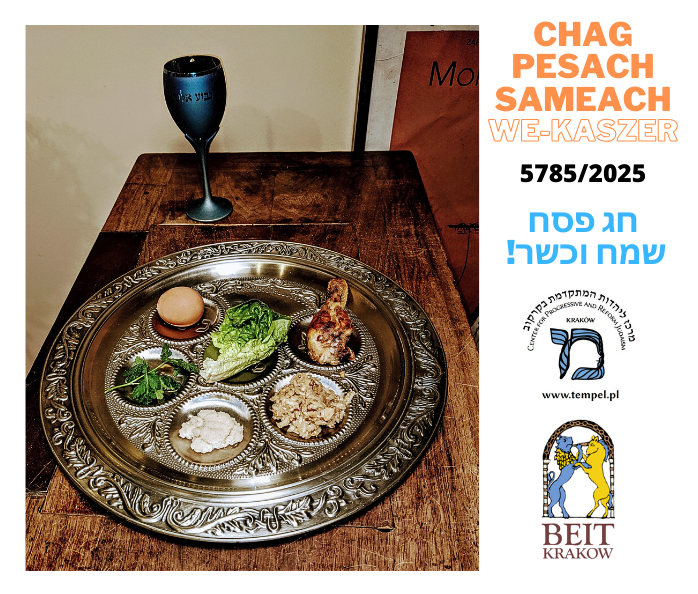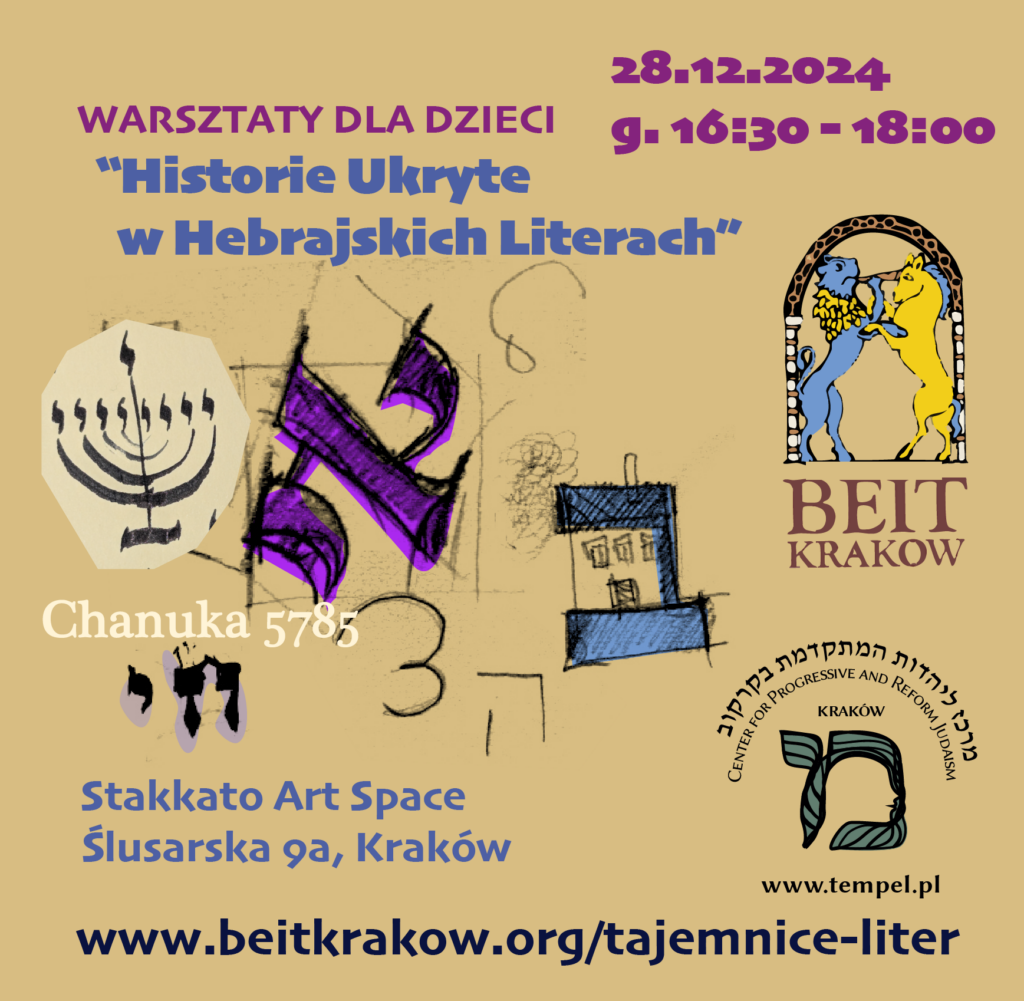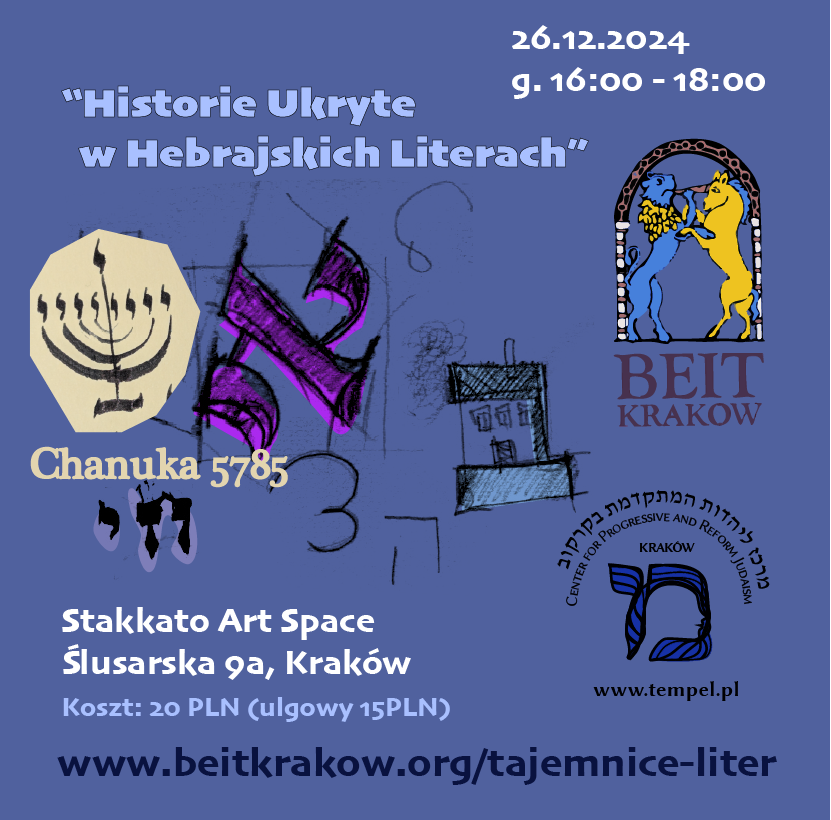
„A te dni Purimowe nigdy zniesione nie zostaną pośród żydów”
And these days of Purim shall not be revoked from amidst the Jews
Wszystko jedno które kierunków myślenia Państwo wybiorą, serdecznie zapraszamy na udział w obchodach święta Purim z Beit Kraków, 28 lutego 2018 (środa) o g.18:00, tradycyjnie już w Galerii Szalom, ul. Józefa 16– najstarszej krakowskiej galerii sztuki.W celu pokrycia kosztów organizacyjnych prosimy o darowiznę 30zł – płatne przy wejściu lub przelewem na konto. Gości, którzy nie są członkami lub przyjaciółmi Beit Kraków prosimy wcześniej o potwierdzenie obecności na adres kontakt@beitkrakow.org
Chag Purim Sameach!
Why is Purim so important to us that our Tradition recommends a fast before for Purim (Taanit Ester), orders us to stop mourning, and that the Zohar states that Purim festival is more momentous than Yom Kippur itself? (Tikunei Zohar p. 57b) What is so important in this seemingly light funny holiday with wine and funny costumes?
There are many answers. In the context of our identity, the Purim festival is a celebration of our miraculous salvation from the anti-Semitic campaign against us
– how could we belittle them, especially in our times? (and maybe at any time)
In the movement of progressive Judaism, how can we not pay the utmost attention to a holiday of which key themes are civil courage, social justice, freedom of religion, equality between women and men and the issue of our social involvement as citizens? – things that the progressive movement (for over 200 years) puts the main accent on – greater than on the traditional religious ritual.
However, seeking answers in the Talmud and midrash regarding Megilat Ester to the verse „And these days will never be forgotten among Jews” (9:28) we can discover the deep meaning of the mitzvah (commandment) of getting drunk on Purim to the point where good and bad is not distinguished, as Rava said: “until he does not know the difference between „cursed be Haman” and „blessed be Mordechai” (Talmud, Megillah 7b). Chazal explains that verse 9:28 means precisely that Purim will always survive, even when all of the holidays are to be nullified in the future (Midrash Mishlei 9:1). The purpose of getting drunk to this degree is to see for a moment these times – the world without evil (modern commentaries). This vision / feeling helps us understand that such a world is possibleand that it is not unimaginably far away, but on the contrary – close and within the reach of each of us.
Whatever way of connecting to Purim you choose, you are cordially invited to participate in the celebration of Purim with Beit Kraków, 28 February 2018 (Wednesday) at 6 p.m. – traditionally at Galeria Szalom, ul. Józefa 16 – the oldest Krakow’s art gallery.
In order to cover organizational costs, please make a donation of 30 PLN per person – payable at the entrance or by transfer to our account. Guests who are not Beit Krakow members or friends are asked to confirm their attendance at kontakt@beitkrakow.org in advance




